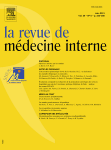 Lambert-Eaton myasthenic syndrome is a rare and autoimmune presynaptic disorder of the neuromuscular junction, due in 85% of cases to autoantibodies directed against voltage-gated calcium channels. It is a paraneoplastic disorder in 50 to 60% of cases. Diagnosis involves a proximal muscle weakness and areflexia, associated with a significant increment after post-exercise stimulation in electrophysiological study. Symptomatic treatment is based on 3,4-diaminopyridine. No etiological treatment has proven its efficacy in both paraneoplastic and non-paraneoplastic Lambert-Eaton myasthenic syndrome. This study reports a 41-year-old man who presented with a seronegative non-paraneoplastic Lambert-Eaton myasthenic syndrome in whom conventional immunosuppressive treatments (corticosteroids, azathioprine) failed, and who eventually improved after treatment with rituximab. The authors conclude that rituximab is an effective and well-tolerated treatment in this case of seronegative non-paraneoplastic Lambert-Eaton myasthenic syndrome. Its indication should be discussed when conventional immunosuppressive therapy fails in both seropositive and seronegative patients.
Lambert-Eaton myasthenic syndrome is a rare and autoimmune presynaptic disorder of the neuromuscular junction, due in 85% of cases to autoantibodies directed against voltage-gated calcium channels. It is a paraneoplastic disorder in 50 to 60% of cases. Diagnosis involves a proximal muscle weakness and areflexia, associated with a significant increment after post-exercise stimulation in electrophysiological study. Symptomatic treatment is based on 3,4-diaminopyridine. No etiological treatment has proven its efficacy in both paraneoplastic and non-paraneoplastic Lambert-Eaton myasthenic syndrome. This study reports a 41-year-old man who presented with a seronegative non-paraneoplastic Lambert-Eaton myasthenic syndrome in whom conventional immunosuppressive treatments (corticosteroids, azathioprine) failed, and who eventually improved after treatment with rituximab. The authors conclude that rituximab is an effective and well-tolerated treatment in this case of seronegative non-paraneoplastic Lambert-Eaton myasthenic syndrome. Its indication should be discussed when conventional immunosuppressive therapy fails in both seropositive and seronegative patients.
